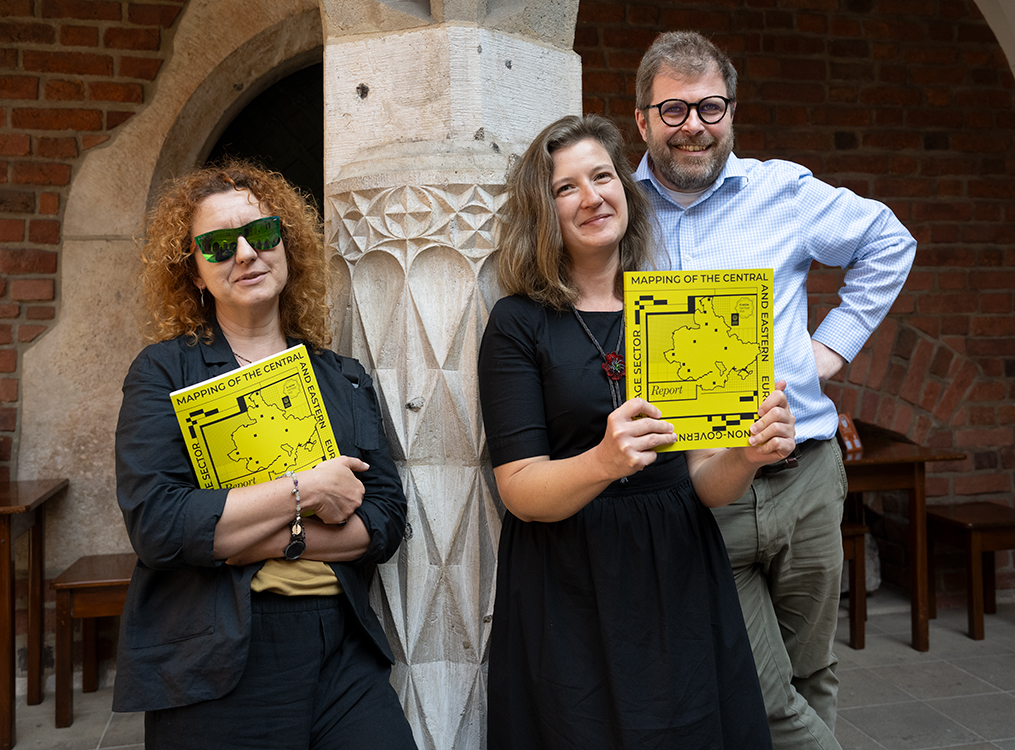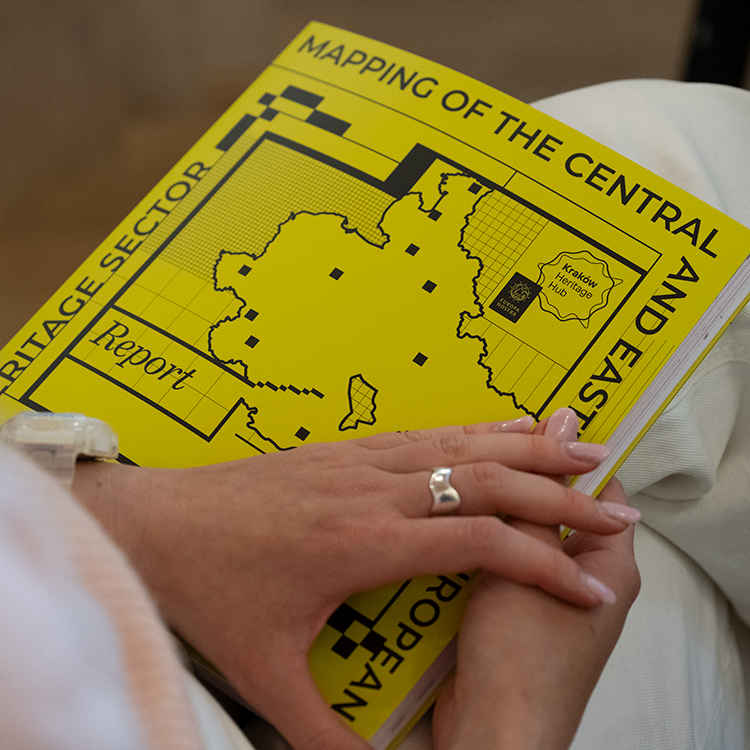We use cookies to help you navigate efficiently and perform certain functions. You will find detailed information about all cookies under each consent category below.
The cookies that are categorized as "Necessary" are stored on your browser as they are essential for enabling the basic functionalities of the site. ...
Necessary cookies are required to enable the basic features of this site, such as providing secure log-in or adjusting your consent preferences. These cookies do not store any personally identifiable data.
Functional cookies help perform certain functionalities like sharing the content of the website on social media platforms, collecting feedback, and other third-party features.
Analytical cookies are used to understand how visitors interact with the website. These cookies help provide information on metrics such as the number of visitors, bounce rate, traffic source, etc.
Performance cookies are used to understand and analyze the key performance indexes of the website which helps in delivering a better user experience for the visitors.
Advertisement cookies are used to provide visitors with customized advertisements based on the pages you visited previously and to analyze the effectiveness of the ad campaigns.
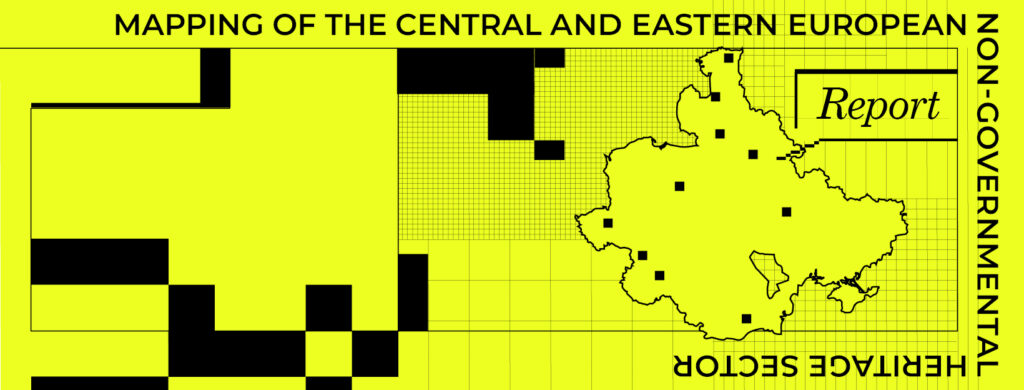
In June 2025, the Europa Nostra Heritage Hub in Kraków in collaboration with Centrum Cyfrowe in Warsaw, launched a report on the state of the non-governmental heritage sector in Central and Eastern Europe: “Mapping of the Central and Eastern European non-governmental heritage sector: Report”. It is the result of a 2023–2025 research project that covered ten European countries: Belarus, Czechia, Estonia, Hungary, Latvia, Lithuania, Poland, Romania, Slovakia and Ukraine.
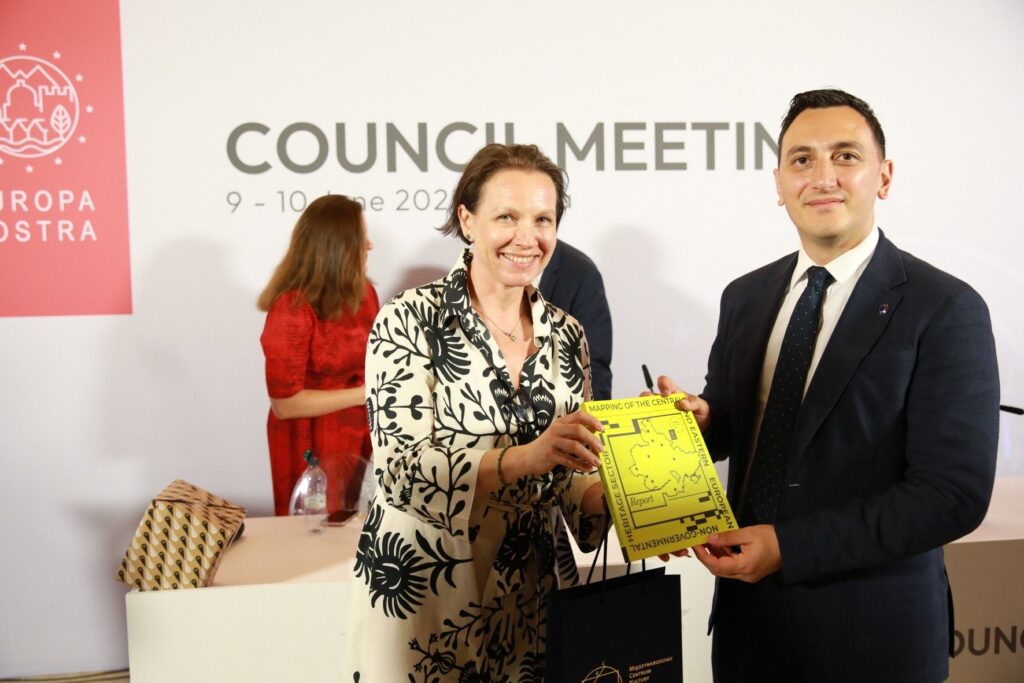

Fot. Glenn Micallef, European Commissioner for Intergenerational Fairness, Youth, Culture and Sport, received a copy of the report from Agata Wąsowska-Pawlik, Board Member of Europa Nostra
The project responded to the need to fill knowledge gaps about the scale, characteristics and challenges of the non-governmental heritage sector in the region, which has been estimated at around 33,500 entities. What we learn from the research is that the sector is rather fragmented, but operating dynamically, based on deep-rooted social values and a sense of mission. An emerging sense of lack of appreciation from authorities and society, together with difficulties of a financial nature, underpin the often indicated burnout of those working in the sector and their reduced sense of job satisfaction. The interest of young people and generational renewal within organisations is also cited as a significant challenge facing organisations. In order for the sector to function smoothly, a change in the perception of NGOs and an appreciation of their hard work on the one hand, and a reform of financial and organisational support on the other, is necessary.
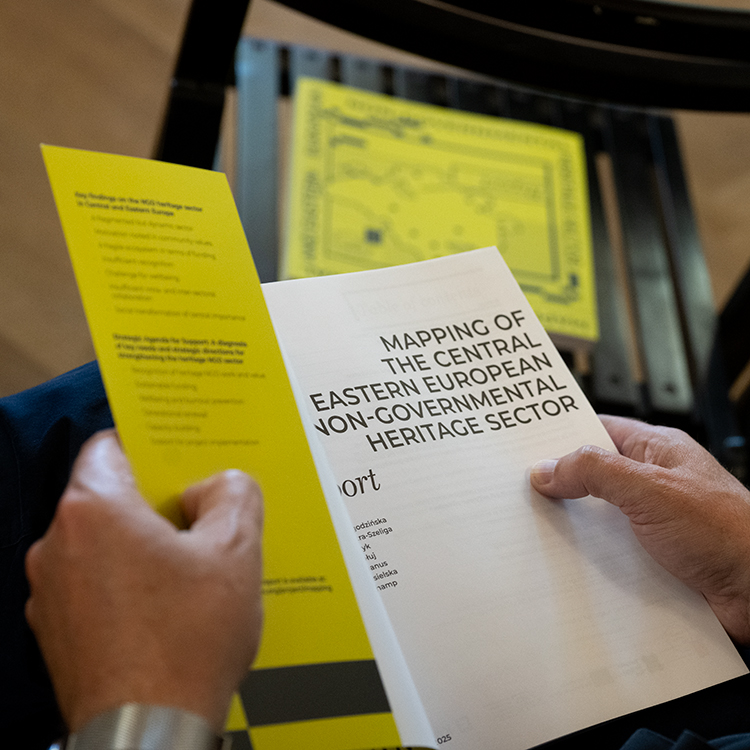
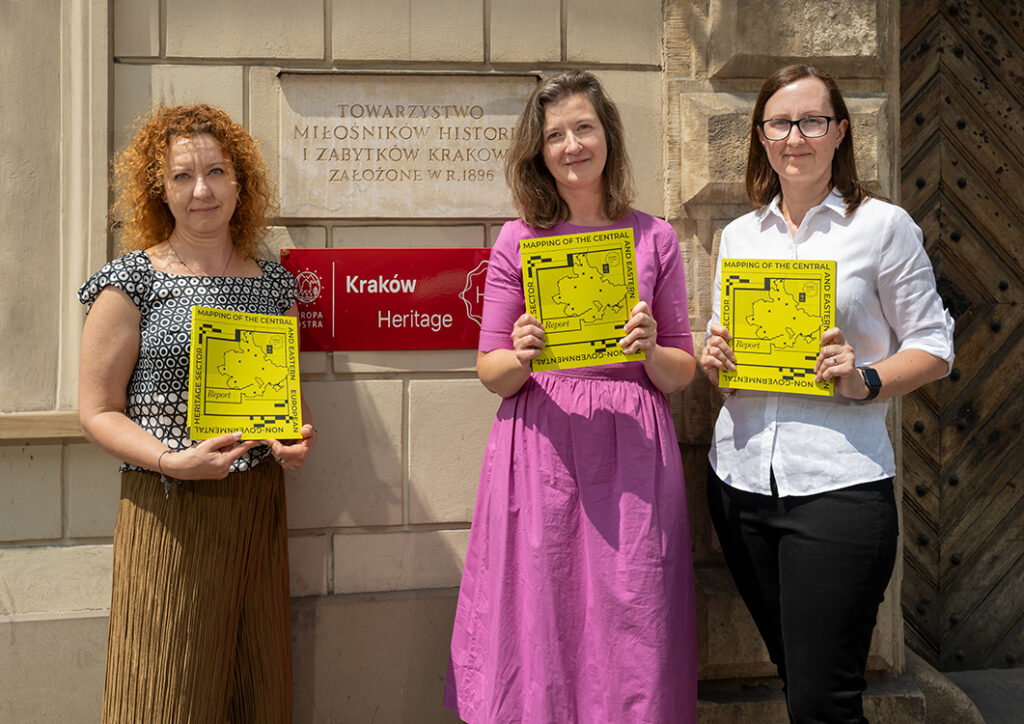
The research was based on desk research, quantitative data analysis, an online survey, in-depth interviews with key stakeholders and group interviews conducted in ten national languages. Ten facilitators from each country included in the analysis assisted in the data collection.
The study was carried out as part of the international consortium of the European Heritage Hub – one of the largest Europe-wide heritage projects to support green, social and digital transformation. The project is co-funded by the European Union and Europa Nostra Heritage Hub in Kraków is one of the twenty partners.
The report has been published in print and electronic versions. We encourage you to download the electronic version. Organisations, institutions and individuals who would like to receive a printed version of the report, please contact us by e-mail.
To quote the report:
Jagodzińska, Katarzyna, Sanetra-Szeliga, Joanna, Drabczyk, Maria, Hołuj, Dominika, Janus, Aleksandra, Ciesielska, Zuzanna, and Beauchamp, John. 2025. Mapping of the Central and Eastern European non-governmental heritage sector: Report. Kraków: Towarzystwo Miłośników Historii i Zabytków Krakowa.
